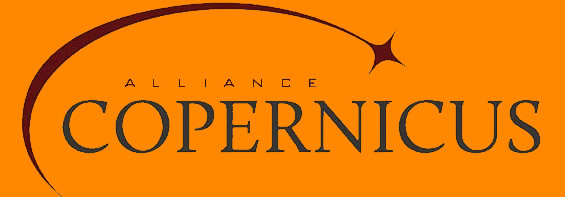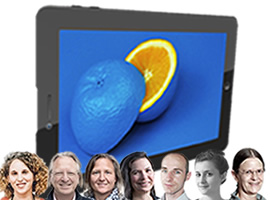#6 05/2020
The organizers of the Virtual Higher Education Summit 2020:
Ingrid Mulà, Michael Stauffacher, Theres Paulsen, Nelly Niwa, Mario Diethart, Camilla Steinböck & Anne Zimmermann
| _ |
"The focus of the #HES2020 is on networking as well as transformative learning, assessment, quality assurance, and sustainable development, where we want to achieve both scientific and practical progress." |
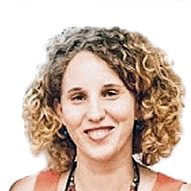 Ingrid Mulà The COVID-19 crisis has forced everyone to innovate and re-imagine forms of learning and networking. This includes the Higher Education Summit (#HES2020), which will take place as a virtual conference instead of a face-to-face event in Bern, Switzerland. The six challenges identified by the conference organizers haven’t changed, but the urgency of addressing them has grown exponentially.
Ingrid Mulà The COVID-19 crisis has forced everyone to innovate and re-imagine forms of learning and networking. This includes the Higher Education Summit (#HES2020), which will take place as a virtual conference instead of a face-to-face event in Bern, Switzerland. The six challenges identified by the conference organizers haven’t changed, but the urgency of addressing them has grown exponentially.
Michael, from your perspective as the outgoing president of the Swiss Academic Society for Environmental Research and Ecology (saguf) and co-director of the innovative transdisciplinarity lab (td-lab) at the ETH Zurich, how do you think that this virtual convening can help broaden and increase insights into implementing transformative learning at higher education institutions?
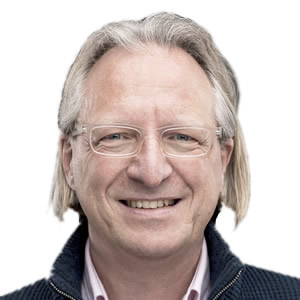 Michael Stauffacher (saguf) Transformative learning in higher education was discussed in December 2019 at a face-to-face Dialogue event organized by saguf (see Box “saguf Dialogue 2019” in Mader et al. 20201). Key learnings and many open questions from this dialogue will flow into the #HES2020 this year, like: Has good tertiary teaching not always been transformative? What conditions encourage students and lecturers to adopt transformative learning? How can safe learning spaces be created? Are there indicators for assuring the quality of transformative learning? saguf is looking forward to tackling these and many other questions together with numerous communities around the world, including our partners in transdisciplinary research (td-net), the COPERNICUS Alliance (CA), and the Universities of Bern and Lausanne.
Michael Stauffacher (saguf) Transformative learning in higher education was discussed in December 2019 at a face-to-face Dialogue event organized by saguf (see Box “saguf Dialogue 2019” in Mader et al. 20201). Key learnings and many open questions from this dialogue will flow into the #HES2020 this year, like: Has good tertiary teaching not always been transformative? What conditions encourage students and lecturers to adopt transformative learning? How can safe learning spaces be created? Are there indicators for assuring the quality of transformative learning? saguf is looking forward to tackling these and many other questions together with numerous communities around the world, including our partners in transdisciplinary research (td-net), the COPERNICUS Alliance (CA), and the Universities of Bern and Lausanne.
We currently find ourselves in a fundamentally disruptive situation, are experiencing liminality (Förster et al. 20192), and are going through a truly transformative learning process. At our university (ETH Zurich), we had to move all courses online within one week. It worked for most but not for all courses – much to our regret, we had to cancel our transdisciplinary case study, a truly transformative learning experience that has been taking place since 1994. The time was just too short and the health risks too big. Yet we probably have to find new hybrid or fully virtual formats as well for such real-world project-based courses.
It will be interesting to observe – both in the preparation and the actual running of the #HES2020 – how all of us, individually and collectively, cope with these challenges. I am really reassured because I know that CA already collected numerous and helpful experiences last year with organizing an online conference. This year, with the pressing urgency of the Corona crisis and increased support from additional members in the organizing committee, we will be moving the boundaries of knowledge and experience even further. I am convinced that we need these skills and competencies in the years to come, as the new normal will be different. We will probably even experience a true societal transformation process in which the social practices of conferencing will shift in a fundamental way!
Ingrid Mulà I really like the idea of pushing the boundaries of knowledge and experience further to explore options for higher education for sustainable development (HESD). There is clearly a need to support transdisciplinary approaches across higher education. Theres, as the director of td-net, the Network for Transdisciplinary Research of the Swiss Academies of Arts and Sciences, how do you think that this conference can contribute to clarifying the relationship between transdisciplinarity on the one hand, and transformative learning and education for sustainable development (ESD) on the other?
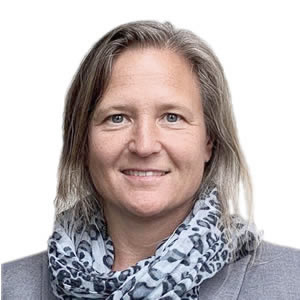 Theres Paulsen (td-net) A key ambition of transdisciplinary research (TDR) is to help society cope with societal challenges; this is also what ESD is trying to achieve. In TDR we try to take the complexity of a problematic situation into account. Sustainable development is a societal challenge and sustainability problems are complex. Therefore, the community of sustainability researchers are particularly engaged in this approach, but sustainability should be incorporated much more broadly into higher education and all departments should learn what contribution they can make to sustainable development. This isn’t easy and perhaps TDR, like ESD, can provide inspiration for this mainstreaming process. Collaborative transdisciplinary approaches are crucial for the success of a research project linking science and society, and it is necessary to acquire the competences needed for TDR, i.e. to understand what TDR is and how TD processes work and can be designed. These competences are very similar to those defined for ESD, and developing them often relies on transformative learning; this is where I see another clear link.
Theres Paulsen (td-net) A key ambition of transdisciplinary research (TDR) is to help society cope with societal challenges; this is also what ESD is trying to achieve. In TDR we try to take the complexity of a problematic situation into account. Sustainable development is a societal challenge and sustainability problems are complex. Therefore, the community of sustainability researchers are particularly engaged in this approach, but sustainability should be incorporated much more broadly into higher education and all departments should learn what contribution they can make to sustainable development. This isn’t easy and perhaps TDR, like ESD, can provide inspiration for this mainstreaming process. Collaborative transdisciplinary approaches are crucial for the success of a research project linking science and society, and it is necessary to acquire the competences needed for TDR, i.e. to understand what TDR is and how TD processes work and can be designed. These competences are very similar to those defined for ESD, and developing them often relies on transformative learning; this is where I see another clear link.
As the Network for Transdisciplinary Research of the Swiss Academies of Arts and Sciences, td-net can certainly help to explore the challenges ahead and support mainstreaming efforts. As a platform, td-net advances mutual learning between researchers and lecturers across thematic fields, languages, and countries and thus supports community building.
One main focus of td-net is capacity building. For this reason, it developed the world’s first MOOC on transdisciplinarity in spring 2020 within its nationwide network. The MOOC is recommended for Master students, PhDs and postdocs, project leaders, and practitioners engaged in research cooperation. The interactive elements are the heart of the open online course and are designed to transform the learners’ understanding of what science is and what it can achieve in the context of sustainability needs.
Another main focus of td-net is the funding programme for students’ initiatives in the field of sustainable development. Transformative learning and ESD are key issues of this programme that would like to see the emergence of a new generation of students and ideas for a more sustainable world. We are curious to see what other formats and ideas the international community will bring into the conference and how quality assurance can be guaranteed in this dynamic field.
Ingrid Mulà Let us turn to another challenge addressed by the #HES2020: How can the conference help increase partnerships with communities that don’t usually partner? Can this still happen if the conference is virtual? Nelly, as the director of the Interdisciplinary Centre for Sustainability (CID) at the University of Lausanne (UNIL), could you provide examples such as the partnership between the University of Lausanne with the City of Lausanne and UniL’s use of the campus as a real-world lab?
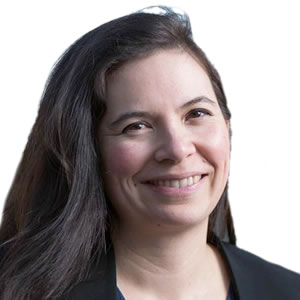 Nelly Niwa (UNIL) This conference will indeed provide an opportunity to discuss the third mission of universities, which – after teaching and research – is to serve society. More than ever, the current health crisis invites us to renew our understanding of this “public utility” of research. This is particularly true for sustainability research, which must increase its social relevance and impact. It is therefore no longer just a question of doing research "on", but also "with" actors.
Nelly Niwa (UNIL) This conference will indeed provide an opportunity to discuss the third mission of universities, which – after teaching and research – is to serve society. More than ever, the current health crisis invites us to renew our understanding of this “public utility” of research. This is particularly true for sustainability research, which must increase its social relevance and impact. It is therefore no longer just a question of doing research "on", but also "with" actors.
The #HES2020 will engage colleagues in sharing strategies and concrete ways of implementing action and collaborative research. This will help us to identify the potential of such research, but also its limitations (e.g. lack of academic recognition, little budget available to fund this type of research, and complexity of processes), as well as its links with other forms of research, including fundamental research.
UNIL is very active in the development of this type of transformative research and has set up platforms and projects that bring together all types of stakeholders to work together on key sustainability challenges (e.g. see www.volteface.ch and www.vaud2030.ch). As examples, we are currently working in partnership with cities and cantons on questions of neutrality, and with artists on sustainable imaginaries. We are also developing our own campus collaborative research on energy and agricultural aspects.
When the severity of the COVID-19 crisis became clear to us conference organisers, we immediately saw the change of format as an interesting opportunity rather than a challenge. A virtual form of convening will allow us to increase the number of participants and professional exchanges. Participants will also be able to watch pre-recorded films with testimonies from actors who may not have been able to participate in a face-to-face meeting, and who speak about different forward-looking collaborative ventures.
Ingrid Mulà Going virtual is certainly a key opportunity to make this conference a truly inclusive event. Mario, your role in organizing the CA Online Conference 2019 was crucial. In your view, what are the lessons learned and how different will the conference be this year?
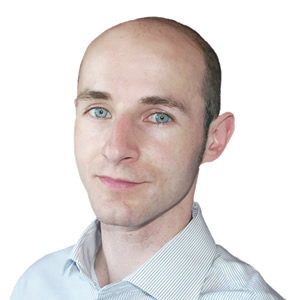 Mario Diethart (CA) To us, last year’s event was a pilot experience to test whether we could support transformative networking through an online format that is more sustainable in our view. For three days, participants were able to join different sessions, including keynotes with pre-recorded videos and forums, live discussions, and interactive workshops in parallel rooms. The feedback we received from the 80 participants coming from all over the world was overwhelmingly positive and we also gathered numerous ideas for improvements. Thus, the decision to make the #HES2020 a virtual event was not difficult to take.
Mario Diethart (CA) To us, last year’s event was a pilot experience to test whether we could support transformative networking through an online format that is more sustainable in our view. For three days, participants were able to join different sessions, including keynotes with pre-recorded videos and forums, live discussions, and interactive workshops in parallel rooms. The feedback we received from the 80 participants coming from all over the world was overwhelmingly positive and we also gathered numerous ideas for improvements. Thus, the decision to make the #HES2020 a virtual event was not difficult to take.
Acknowledging that support is needed to make an online conference a truly transformative event, we published the “CA Guidelines for Virtual Conferencing” at the beginning of this year. Probably the most important take-away message in these guidelines is that organizers need to understand that an online environment demands special kinds of formats and methodologies, and a very thorough preparation. Organizers are challenged to find a clever combination of software tools and programme design to provide an enriching online experience for participants. The #HES2020 will include a wide range of innovative sessions including keynotes, forums, co-creative labs, solution rooms, a poster plaza, and even virtual excursions!
Ingrid Mulà Virtual excursions? It is true that before COVID-19, the draft conference programme included a series of excursions to get to know real local transformative learning projects in Bern, the host city. Camilla, as a member of the Centre for Development and Environment (CDE) at the University of Bern who is organizing this part of the conference, can you tell us how excursions can take place in a virtual environment? What can participants expect?
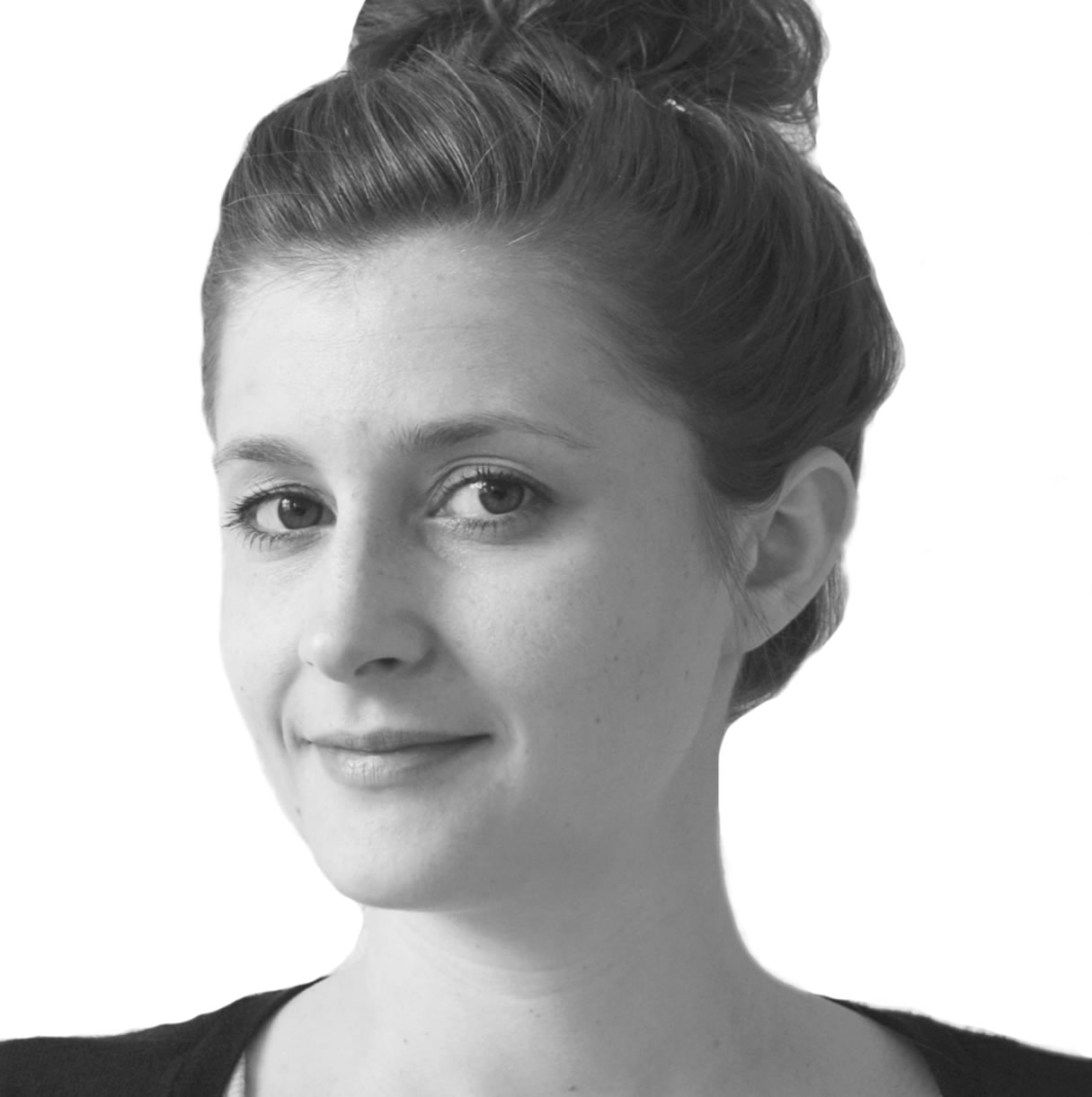 Camilla Steinböck (UniBE) The reason why we originally planned to take the conference participants on excursions was to provide them insights into what transformation implies in practice, and for them to experience specific examples of transformation with all their senses, with their mind and body. After the decision to go online, we chose to take on the challenge and keep the excursions in the programme. The idea is to develop short films about different local transformative projects in Bern and upload them on the conference website already before the start of the #HES2020. Participants will be able to watch the videos on their own time, allowing them to travel online to the City of Bern.
Camilla Steinböck (UniBE) The reason why we originally planned to take the conference participants on excursions was to provide them insights into what transformation implies in practice, and for them to experience specific examples of transformation with all their senses, with their mind and body. After the decision to go online, we chose to take on the challenge and keep the excursions in the programme. The idea is to develop short films about different local transformative projects in Bern and upload them on the conference website already before the start of the #HES2020. Participants will be able to watch the videos on their own time, allowing them to travel online to the City of Bern.
During the conference days, we will organize break-out sessions for each excursion where participants will have the opportunity to discuss what they have experienced virtually and discuss key questions raised in the videos. We plan to invite the leaders of the local projects to join the online discussion so that there is a true exchange amongst participants and local actors. This is something we really look forward to!
Ingrid Mulà In a recent paper published in GAIA (Mader et al. 20203), we reflected together on how online conferencing can support transformative learning and networking. Anne, how will this virtual conference support interpersonal competences and, more importantly, how will it get people to interact and learn from each other across disciplinary and professional boundaries?
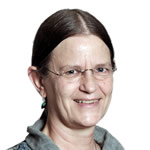 Anne Zimmermann (CA & UniBE) When we started planning the #HES2020 together last October, we identified an urgent need to create bridges between different professional and stakeholder communities to trigger the necessary step change for transformative learning and quality assurance for sustainable development in higher education. So networking was – and remains – one of our essential objectives, despite the change to a virtual format. The other objective is the focus on transformative learning, assessment, quality assurance, and sustainable development, where we want to achieve both scientific and practical progress. Both objectives require creative listening among communities and new inspirations. I am confident that we will succeed, for two reasons: first because with the COVID-19 crisis everyone has now been forced to work and exchange primarily in an online mode, leading to a strong learning curve, and second because those interested in higher education for sustainable development are likely to have the curiosity and attitude needed to make things happen. According to a sociologist with whom I was talking about behaviour change before Christmas, the desire for a specific change and the belief that it can happen are important factors of effective change...
Anne Zimmermann (CA & UniBE) When we started planning the #HES2020 together last October, we identified an urgent need to create bridges between different professional and stakeholder communities to trigger the necessary step change for transformative learning and quality assurance for sustainable development in higher education. So networking was – and remains – one of our essential objectives, despite the change to a virtual format. The other objective is the focus on transformative learning, assessment, quality assurance, and sustainable development, where we want to achieve both scientific and practical progress. Both objectives require creative listening among communities and new inspirations. I am confident that we will succeed, for two reasons: first because with the COVID-19 crisis everyone has now been forced to work and exchange primarily in an online mode, leading to a strong learning curve, and second because those interested in higher education for sustainable development are likely to have the curiosity and attitude needed to make things happen. According to a sociologist with whom I was talking about behaviour change before Christmas, the desire for a specific change and the belief that it can happen are important factors of effective change...
Indeed, our experience with last year’s COPERNICUS Alliance Online Conference 2019 was that participants were surprisingly willing to engage in listening carefully to new ideas from unknown participants and in boldly volunteering inspirations, which were then discussed in a very fruitful way and across many epistemological borders (which include of course disciplinary borders). A number of new connections between participants emerged out of that conference. So although we were not in a face-to-face meeting, trust was there and supported true exchange and true progress. This is why we thought it would be useful to reflect in parallel on insights from the online conference and on our understanding of transformative learning for sustainable development, and share this as a brief article in GAIA3. We were surprised at the result of our own reflections, presented in the table of that article: most of the conditions needed for transformative learning can be created in a virtual conference! An important issue that needs to be taken into account, however, is the need for a much slimmer program when going online: The level of attention when you are alone in front of a screen simply cannot be maintained for a whole day.
We are currently exploring ways of increasing options for contributors to use simple but effective tools to enhance communication and creativity between participants, especially in the Co-Creative Labs. We are even thinking of maintaining a “book an expert” session to make sure that participants who would not normally meet at a conference actually have an opportunity to do so, even online; there is no limit to inventiveness in a good team, and this is what we definitely are.
Ingrid Mulà Indeed, creative teams are needed more than ever and I am sure that the conference will be a truly transformative networking experience. To colleagues interested in participating: registration will be open as of 15 May 2020. More information can be found on the Conference website: www.higher-education-summit-2020.com. We hope that you can join us for this forward-looking event!
1 Balsiger J, Förster R, Mader C, Nagel U, Sironi H, Wilhelm S, Zimmermann AB. 2017. Transformative learning and education for sustainable development. GAIA - Ecological Perspectives for Science and Society 26(4): 357-359. https://doi.org/10.14512/gaia.26.4.15
2 Förster R, Zimmermann AB, Mader C. 2019. Transformative teaching in higher education for sustainable development: facing the challenges. GAIA - Ecological Perspectives for Science and Society 28(3): 324-326. https://doi.org/10.14512/gaia.28.3.18
3 Mader C, Zimmermann AB, Diethart M, Mulà I. 2020. Virtual conferences in higher education: Teasing out their transformative potential for sustainable development. GAIA - Ecological Perspectives for Science and Society 29(1): 57-59. https://doi.org/10.14512/gaia.29.1.12
HES2020 Website: www.higher-education-summit-2020.com
Download full conversation as pdf
